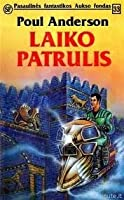Thought Experiments
(i) I was born on 1 January 1949 and die on 5 May 2022. It follows that I do not exist after 5 May 2022 but also that I was alive until that date. Something that no longer exists and something that never existed have in common that neither exists now but they have very different ontological statuses.
(ii) I was born on 1 January 1949 and, on 5 May 2022, I time travel into the far past, never to return, indeed to die back then. Again, I do not exist after the moment of my departure into the past but was alive until that moment.
(iii) I was born on 1 January 1949 and, on 5 May 2022, I time travel to 1947. In that year, I prevent a meeting between the man and woman who would otherwise have been my parents. I remember living from 1949 until 2022 but, after preventing that meeting, I am living in a timeline in which I will not live from 1949 until 2022. Clearly we are contemplating two timelines whatever we then go on to say about their respective ontological statuses. If I say that I am now living in a timeline where there is no Paul S, 1949-2022, then that temporal adverb, "now," does not refer to any succession of moments within the current timeline. Two entire timelines are in a temporal (or hyper-temporal?) relationship of before and after with each other. It cannot be that, within a single timeline, first there was a Paul S, 1949-2022, then there was not.
(iv) However, if we stipulate that the remembered timeline with a Paul S, 1949-2022, never existed in any sense whatsoever - did not exist in the past of a second temporal dimension -, then we were wrong to begin example (iii) above with "I was born on 1 January 1949..." All we can say in that case is that a version of me, apparently seventy-three years old and "remembering" an entire lifetime that never happened, appeared from nowhere and nowhen in 1947. We should not try to have it both ways. We should not refer to an "original" or "earlier" timeline as if it existed, then deny that it existed.
Practical Implications
If I exist now and if a time traveller departs into the past intending to prevent my parents from meeting, then I can be confident that:
if there is only a single timeline, then he failed;
if he initiates a later timeline in which I do not exist, that does not negate the fact that, in this earlier timeline, I do exist now.

4 comments:
Kaor, Paul!
Ugh! No wonder time traveling stories gives Mr. Stirling headaches! (Smiles)
Ad astra! Sean
Sean,
But I think that I express it clearly every time. There is nothing complicated about a first temporal dimension imagined as running from left to right on a page and a second temporal dimension running from bottom to top of the page. Every point from left to right represents a single moment in three-dimensional space. Every parallel line from bottom to top represents a single four dimensional space time continuum. If I occupy a point in the middle of the page, then every point to the left of my position is a moment in (what I perceive as) the past. Points to the right are the future. Lines below are past, "deleted," timelines. Lines above are future timelines. A time traveller who is going to "change the past" moves to the left and up.
Paul.
Kaor, Paul!
You do, and I grasp your argument while reading it. The problem is keeping it straight in my head afterwards. But nothing that can't be handled thru memorization.
Ad astra! Sean
Kaor, Paul!
You do! The problem is keeping your argument straight in my head afterwards. But nothing that can't be handled thru memorization.
Ad astra! Sean
Post a Comment